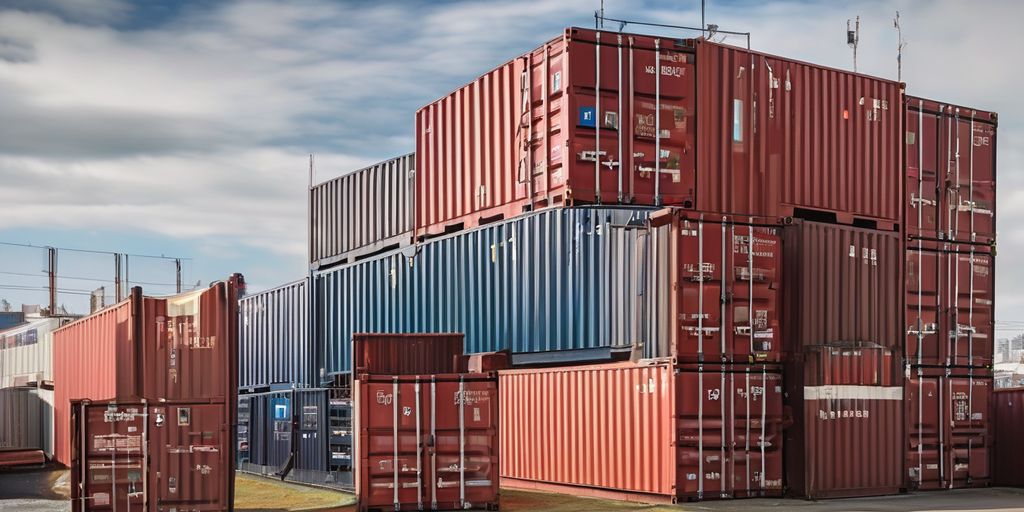The telecom world is changing fast, thanks to containerization in Business Support Systems (BSS). This new technology makes it easier to manage telecom services by breaking them down into smaller, isolated parts called containers. These containers help telecom companies to be more flexible, scale up quickly, and operate more efficiently. In this guide, we’ll explore how containerization is transforming Telecom BSS, the benefits it brings, and the challenges that come with it.
Key Takeaways
- Containerization makes telecom services more flexible and easier to manage.
- It helps telecom companies scale their services quickly and efficiently.
- There are some challenges, like technical issues and security concerns, but they can be solved.
- Using containers can save time and money for telecom operators.
- Early adopters of containerization have seen great success and improvements in their operations.
The Evolution of Telecom BSS Through Containerization
The telecom industry has seen a big change with the rise of containerization in Business Support Systems (BSS). This new way of doing things is more agile, efficient, and scalable, changing how we manage telecom operations. Let’s look at how Telecom BSS has evolved with containerization, its effects on old models, and the early adopters who led the way.
The Role of Containerization in Modern BSS
Containerization has become a major force in updating Telecom BSS. By putting BSS applications in containers, telecom operators can reach new heights of scalability and flexibility. This method allows for quick service deployment, easier maintenance, and better compatibility across different environments, leading to a more resilient and efficient operational framework.
Challenges and Solutions in Implementing Containerized BSS
Technical Hurdles and Overcoming Them
Implementing containerized BSS presents several technical challenges. These include compatibility issues with legacy systems, the complexity of transitioning to a microservices architecture, and the need for robust orchestration tools. Effective planning and phased implementation can mitigate these hurdles. Utilizing container orchestration platforms like Kubernetes can streamline the deployment and management of containerized applications.
Addressing Security Concerns
Security is a major concern when implementing containerized BSS. Containers can introduce vulnerabilities if not properly managed. It’s essential to implement robust security measures, such as regular updates, vulnerability scanning, and access controls. Ensuring that security practices are integrated into the development process from the start can significantly reduce risks.
Strategies for Skill Development
The shift to containerized BSS necessitates a new skill set for the workforce. Training programs focused on container technologies, orchestration tools, and security practices are essential. Investing in continuous learning and certification programs can help bridge the skill gap and ensure that teams are well-equipped to manage and maintain containerized BSS solutions.
While containerization offers numerous benefits, it is crucial to address the associated challenges through strategic planning, robust security measures, and comprehensive training programs. This holistic approach ensures a smooth transition and sustainable implementation of containerized BSS.
Innovative Approaches to Containerization in Telecom BSS
Microservices Architecture
In the realm of Telecom BSS, microservices architecture stands out as a revolutionary approach. By breaking down monolithic applications into smaller, independent services, we can achieve greater flexibility and scalability. Each microservice can be developed, deployed, and scaled independently, allowing for more efficient resource utilization and faster time-to-market for new features.
Automation and Orchestration
Automation and orchestration are key to managing containerized environments effectively. Tools like Kubernetes enable us to automate the deployment, scaling, and management of containerized applications. This not only reduces manual intervention but also ensures that our systems are resilient and can recover quickly from failures. Automation scripts and orchestration frameworks help in maintaining consistency across different environments, making it easier to manage complex BSS operations.
Integration with Advanced Technologies
Containerization allows for seamless integration with advanced technologies such as AI, machine learning, and big data analytics. By leveraging these technologies, we can enhance the capabilities of our BSS systems, providing more personalized and efficient services to our customers. For instance, AI-driven analytics can help in predicting network issues before they occur, enabling proactive maintenance and reducing downtime.
The benefits of containerization in Telecom BSS are manifold, including simplified operations, enhanced scalability, and the ability to integrate with advanced technologies. As we continue to explore the advantages of this paradigm shift, it is clear that containerization is not merely a trend but a strategic imperative for telecom operators aiming to thrive in a rapidly evolving digital landscape.
Future Trends in Containerization for Telecom BSS
The future of containerization in Telecom BSS is brimming with exciting trends and innovations. As the industry evolves, staying ahead of the curve is crucial. Discover how our cutting-edge solutions can transform your business operations and drive efficiency. Visit our website to learn more about the latest advancements and how we can help you stay competitive.
Case Studies of Successful Containerization in Telecom BSS
We have documented several case studies where embracing containerization revolutionizes telecom BSS infrastructure with benefits like scalability and efficiency. These examples serve as a testament to the potential of containerization in transforming telecom BSS systems:
Explore our case studies on successful containerization in Telecom BSS. These stories show how companies have transformed their operations and boosted efficiency. Want to learn more? Visit our website for detailed insights and see how you can benefit too.
Conclusion
In summary, containerization is changing the game for Telecom Business Support Systems (BSS). By using containers, telecom companies can make their operations more flexible, scalable, and efficient. This technology helps in quickly deploying services, making maintenance easier, and ensuring that different systems work well together. As we have seen, containerization is not just a passing trend but a crucial step for telecom operators who want to stay ahead in the fast-changing digital world. This guide has shown how containerization can transform telecom BSS, making it clear that this approach is essential for future success.



